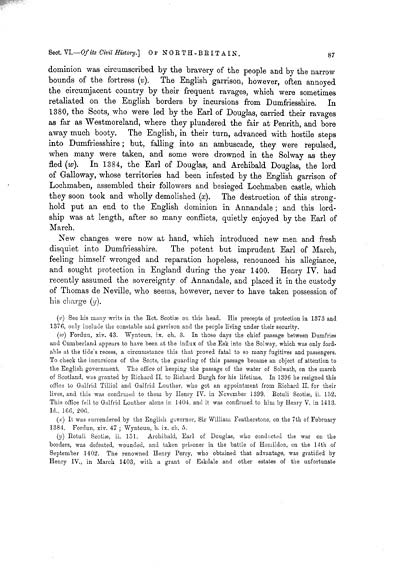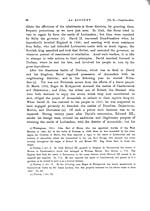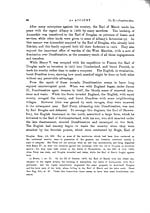Volume 5
(93) Page 87
Download files
Individual page:
Thumbnail gallery: Grid view | List view

87 dominion was circumscribed by the bravery of the people and by the narrow bounds of the fortress (v). The English garrison, however, often annoyed the circumjacent country by their frequent ravages, which were sometimes retaliated on the English borders by incursions from Dumfriesshire. In 1380, the Scots, who were led by the Earl of Douglas, carried their ravages as far as Westmoreland, where they plundered the fair at Penrith, and bore away much booty. The English, in their turn, advanced with hostile steps into Dumfriesshire; but, falling into an ambuscade, they were repulsed, when many were taken, and some were drowned in the Solway as they fled (w). In 1384, the Earl of Douglas, and Archibald Douglas, the lord of Galloway, whose territories had been infested by the English garrison of Lochmaben, assembled their followers and besieged Lochmaben castle, which they soon took and wholly demolished (x). The destruction of this strong- hold put an end to the English dominion in Annandale ; and this lord- ship was at length, after so many conflicts, quietly enjoyed by the Earl of March. New changes were now at hand, which introduced new men and fresh disquiet into Dumfriesshire. The potent but imprudent Earl of March, feeling himself wronged and reparation hopeless, renounced his allegiance, and sought protection in England during the year 1400. Henry IV. had recently assumed the sovereignty of Annandale, and placed it in the custody of Thomas de Neville, who seems, however, never to have taken possession of his charge (y). (v) See his many writs in the Rot. Scoti� on this head. His precepts of protection in 1373 and 1376, only include the constable and garrison and the people living under their security. (w) Fordun, xiv. 43. Wyntoun. ix. ch. 3. In those days the chief passage between Dumfries and Cumberland appears to have been at the influx of the Esk into the Solway, which was only ford- able at the tide's recess, a circumstance this that proved fatal to so many fugitives and passengers. To check the incursions of the Scots, the guarding of this passage became an object of attention to the English government. The office of keeping the passage of the water of Solvath, on the march of Scotland, was granted by Richard II. to Richard Burgh for his lifetime. In 1396 he resigned this office to Galfrid Tilliol and Galfrid Louther, who got an appointment from Richard II. for their lives, and this was confirmed to them, by Henry IV. in November 1399. Rotuli Scoti�, ii. 152. This office fell to Galfrid Louther alone in 1404, and it was confirmed to him by Henry V. in 1413. Id., 166, 206. (x) It was surrendered by the English governor, Sir William Featherstone, on the 7th of February 1384. Fordun, xiv. 47 ; Wyntoun, b. ix. ch. 5. (y) Rotuli Scoti�, ii. 151. Archibald, Earl of Douglas, who conducted the war on the borders, was defeated, wounded, and taken prisoner in the battle of Homildon, on the 14th of September 1402. The renowned Henry Percy, who obtained that advantage, was gratified by Henry IV., in March 1403, with a grant of Eskdale and other estates of the unfortunate
Set display mode to:
![]() Universal Viewer |
Universal Viewer | ![]() Mirador |
Large image | Transcription
Mirador |
Large image | Transcription
Images and transcriptions on this page, including medium image downloads, may be used under the Creative Commons Attribution 4.0 International Licence unless otherwise stated. ![]()
| Caledonia, or, An account, historical and topographic of North Britain from the most ancient to the present times > Volume 5 > (93) Page 87 |
|---|
| Permanent URL | https://digital.nls.uk/74530310 |
|---|---|
| Description | Vol. V. |
|---|---|
| Attribution and copyright: |
|

